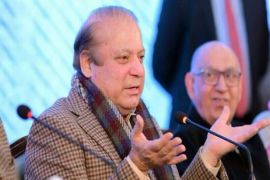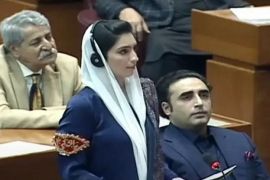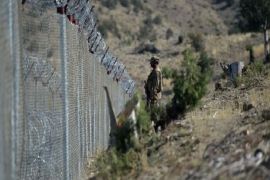The International Monetary Fund (IMF) has approved loans of $4.7 billion to Bangladesh for disbursal starting immediately, making it the first to secure such funds out of three South Asian countries that applied last year amid economic trouble.
The loans are a win for Prime Minister Sheikh Hasina ahead of a general election early next year and will help the country, which has seen a sharp widening of its current account deficit, depreciation of the taka currency and a decline in its foreign exchange reserves.
Bangladesh will get about $3.3bn under the IMF’s extended credit facility and related arrangements, with an immediate disbursement of about $476 million. The IMF executive board also approved about $1.4bn under its newly created Resilience and Sustainability Facility for climate investments for Bangladesh, the first Asian country to access it.
The IMF said the loans will “protect macroeconomic stability and rebuild buffers, while helping to advance the authorities’ reform agenda”.
The agenda includes creating fiscal space to enable greater social and developmental spending, strengthening Bangladesh’s financial sector, boosting fiscal and governance reforms and building climate resilience.
“Since independence, Bangladesh has made steady progress in reducing poverty and significant improvements in living standards,” Antoinette M. Sayeh, the IMF’s deputy managing director, said in a statement.
“However, the Covid-19 pandemic and subsequent Russia’s war in Ukraine interrupted this long period of robust economic performance,” Sayeh added.
“Multiple shocks have made macroeconomic management challenging in Bangladesh.”
The country last year also sought $2bn from the World Bank and the Asian Development Bank amid efforts to bolster its foreign exchange reserves.
Bangladesh’s regional counterparts, Sri Lanka and Pakistan, are doing much worse economically but have not been able to get final approval for IMF loans.
Bangladesh’s current account deficit hit a record $18.7bn in the last financial year, which ended on June 30, as exports of garments failed to offset a surge in energy costs. The Bangladesh central bank expects the deficit to fall to about $6.8bn at the end of the current fiscal year.
The government has also raised fuel and energy prices in recent months as it approached the IMF. It announced a five per cent increase in retail power prices from Wednesday, the second such rise this month.







